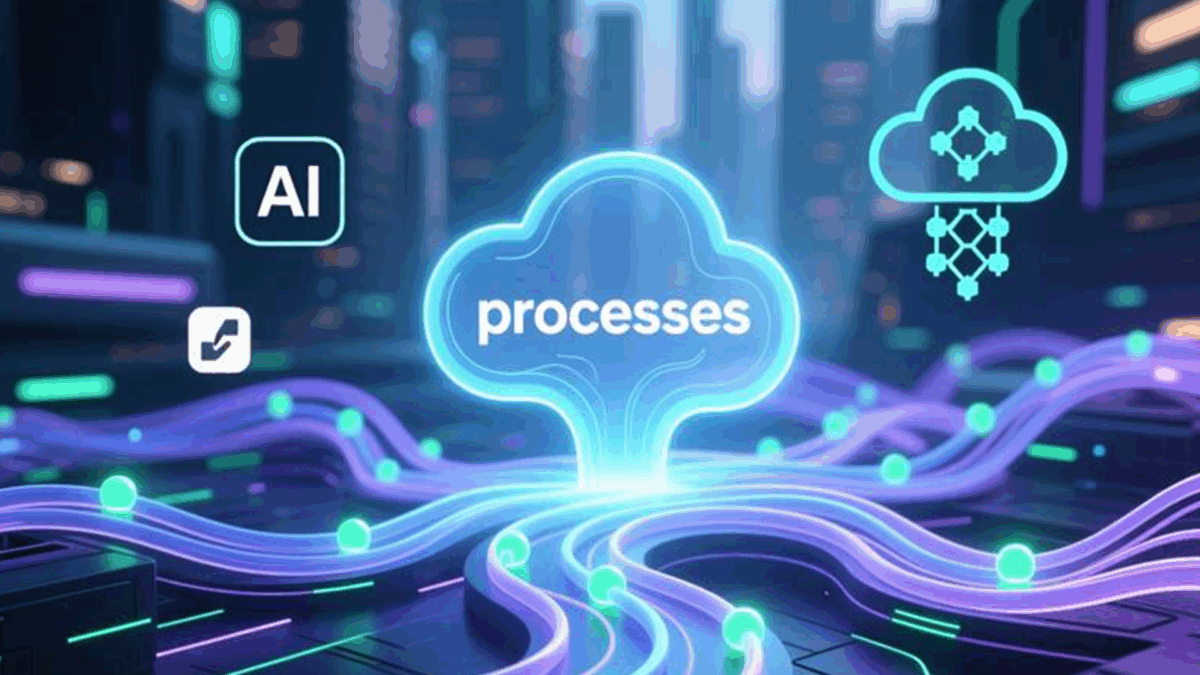
Everyone talks about the technology that drives Fintechs: brilliant apps, open APIs, blockchain, machine learning… But the uncomfortable truth is that most don’t fail due to a lack of technology — they fail due to a lack of processes. While Fintechs have rushed to innovate in products, they’ve neglected what matters most: how they operate, how they make decisions, and how they learn. This is where Business Process Management (BPM), powered by Artificial Intelligence, becomes the true competitive advantage in the digital financial ecosystem.
Technological innovation is no longer a differentiator; it’s a condition of entry. What truly separates a sustainable Fintech from a short-lived one is its ability to design, execute, and improve end-to-end processes. A digital onboarding is not just a beautiful interface — it’s a complex choreography of interconnected steps: KYC (“Know Your Customer”) verification, credit scoring, fraud detection, regulatory compliance, and user experience. Each of these steps requires data consistency, traceability, and automated decision-making. This is where Business Process Management becomes the invisible engine that upholds the promise of agility, efficiency, and compliance. When AI is added, the result is exponential: processes that think, learn, and act.
For years, AI has been the “analytical brain” of Fintechs — detecting fraud, personalizing offers, and adjusting risk. Today, that’s no longer enough. The new frontier is for AI to manage processes, not just analyze them. We are entering the era of AI-Driven BPM, where algorithms don’t just make suggestions — they make decisions, optimize workflows, and execute tasks without human intervention.
Imagine a microcredit process in a Fintech:
• An AI agent receives the application, verifies identity, consults external data, and decides whether to approve or reject.
• Another agent checks regulatory compliance in parallel.
• A third adjusts workflows to reduce response times.
The result: an autonomous, auditable, and traceable operation. This is not science fiction — it’s the operationalization of intelligence. The real leap forward isn’t automation but operational autonomy — processes that self-adjust, detect deviations, and correct execution without waiting for human input.
Every transformation needs a compass. That’s where the Business Process Maturity Model (BPMM) comes in. When combined with AI, it allows Fintechs to measure how ready they are to operate intelligently and at scale. Many Fintechs, though technologically advanced, have low process maturity: ad hoc decision-making, lack of governance, and limited traceability. Applying BPMM + AI makes it possible to design a maturity roadmap — which processes to digitize first, which deserve autonomous intelligence, and how to balance the human–machine relationship.
For example, a Fintech may automate onboarding and scoring but still rely on humans to detect issues. At higher maturity levels, AI anticipates bottlenecks and optimizes decisions without manual intervention. Fintechs that master this approach gain something neither capital nor technology can buy: intelligent operational resilience.
Customers aren’t looking for a prettier app — they want immediate results and frictionless experiences. This is only possible when AI is integrated within the process — not as an add-on, but as the operational brain of the organization. The most advanced Fintechs are building layers of Process Intelligence that continuously monitor and optimize the execution of key processes:
• AI detects that loan approval times have increased by 15% this week.
• It analyzes the cause: congestion in external verifications.
• It suggests an action: reconfigure the workflow or change the API provider.
• If it has enough autonomy, it executes the improvement automatically.
That’s Intelligent BPM — turning data into action in real time. In this new era, processes are the ones that think, and AI gives them meaning, context, and decision-making power.
The great challenge won’t be programming AI — it will be governing its behavior within processes. Who is accountable when an AI approves a loan incorrectly? How do we audit algorithmic decisions?
How can we ensure ethics, transparency, and compliance in autonomous processes? Here, BPM becomes the key ally once again: defining roles, indicators, responsibilities, and rules for continuous improvement. BPM doesn’t compete with AI — it turns it into a strategy. Data-centric, adaptive, and auditable processes ensure efficiency without sacrificing control.
Fintechs were born to break the rules of the financial system, but their consolidation will depend on more than technology — it will depend on process maturity and operational intelligence. Business Process Management provides structure, coherence, and governance; Artificial Intelligence brings speed, learning, and autonomy. Together, they redefine what it means to be an agile, reliable, and scalable organization.
Because, in the end:
Money doesn’t follow technology — it follows processes.
And intelligent processes are what will shape the future of money.
Author: Pedro Robledo – BPM Specialist



